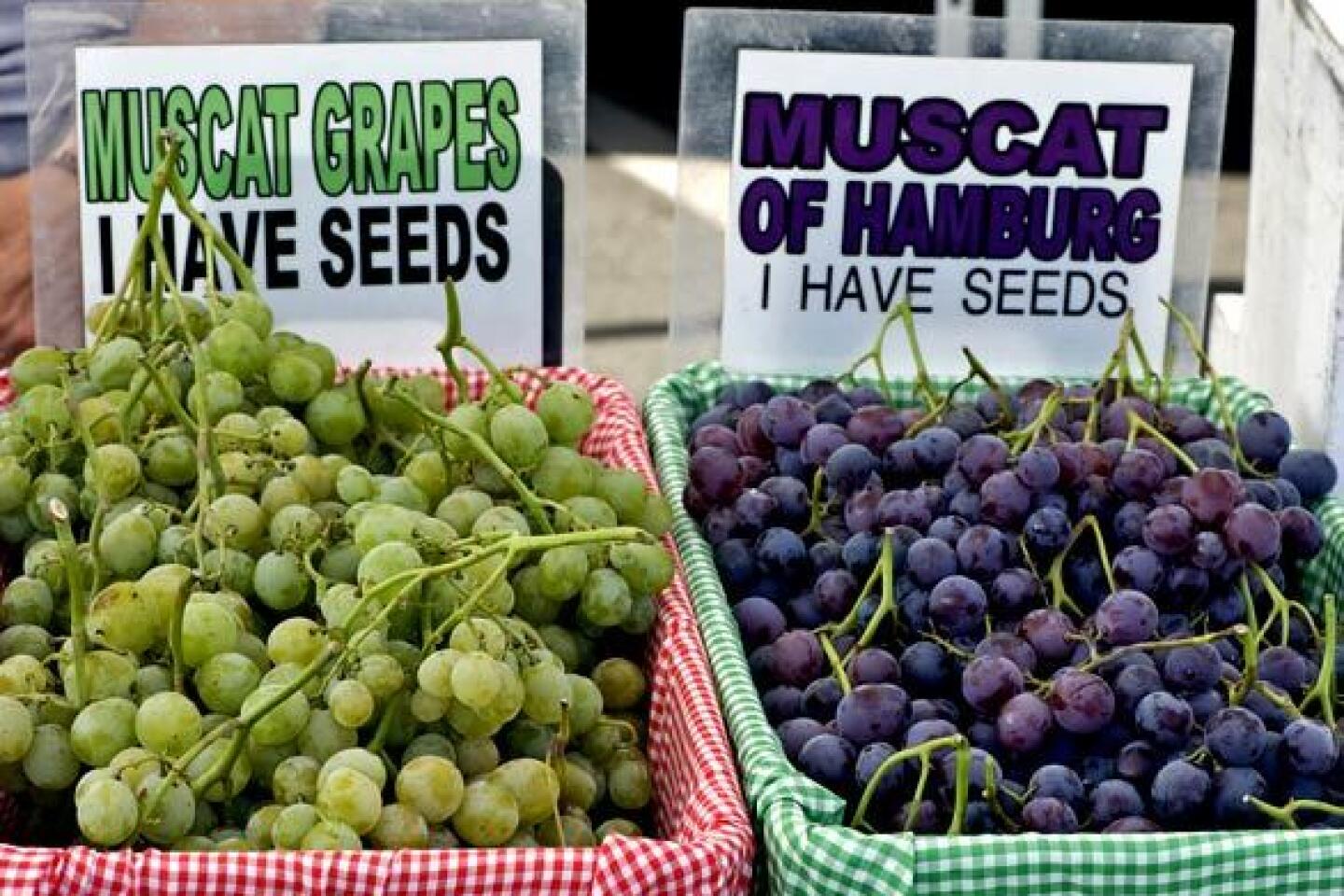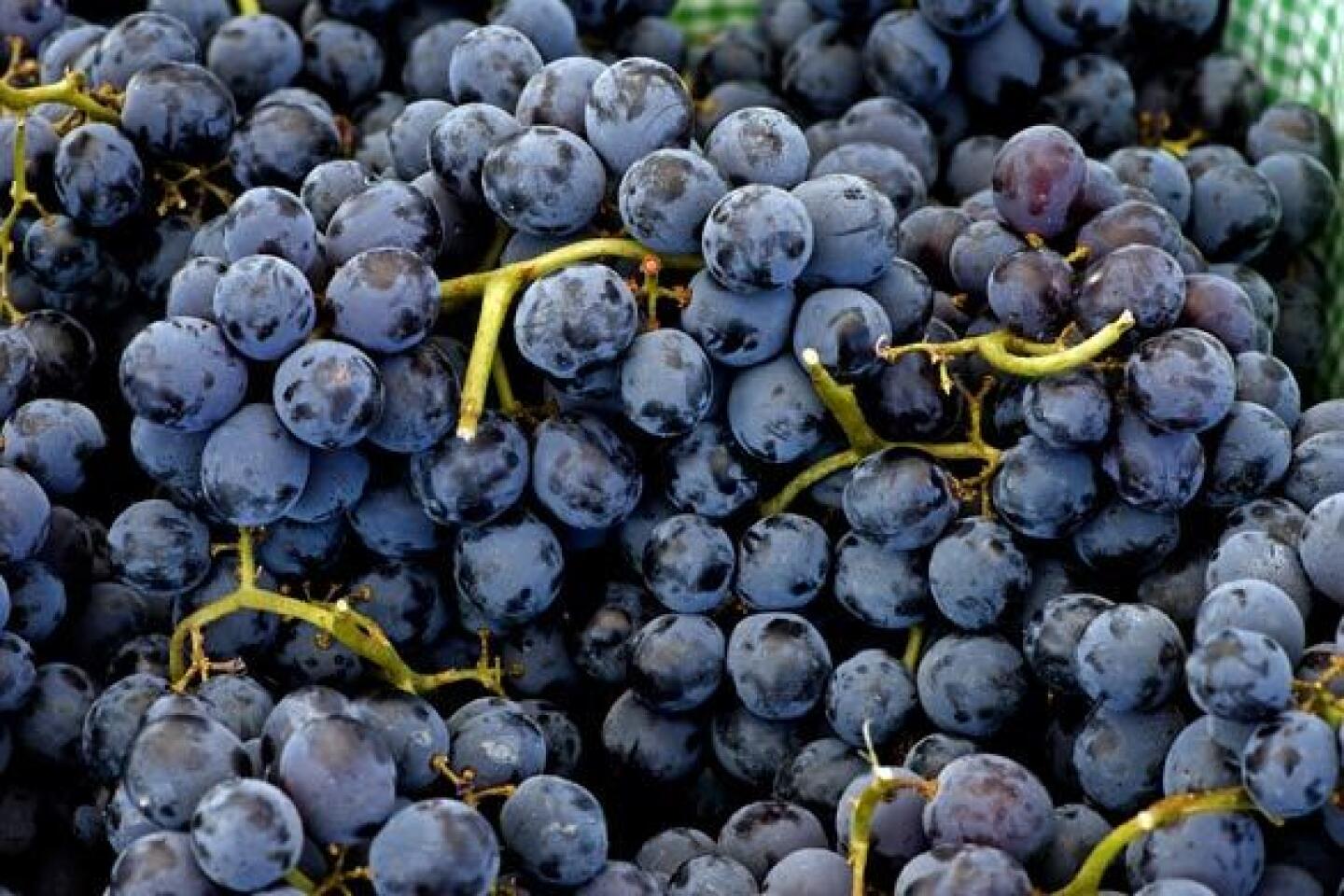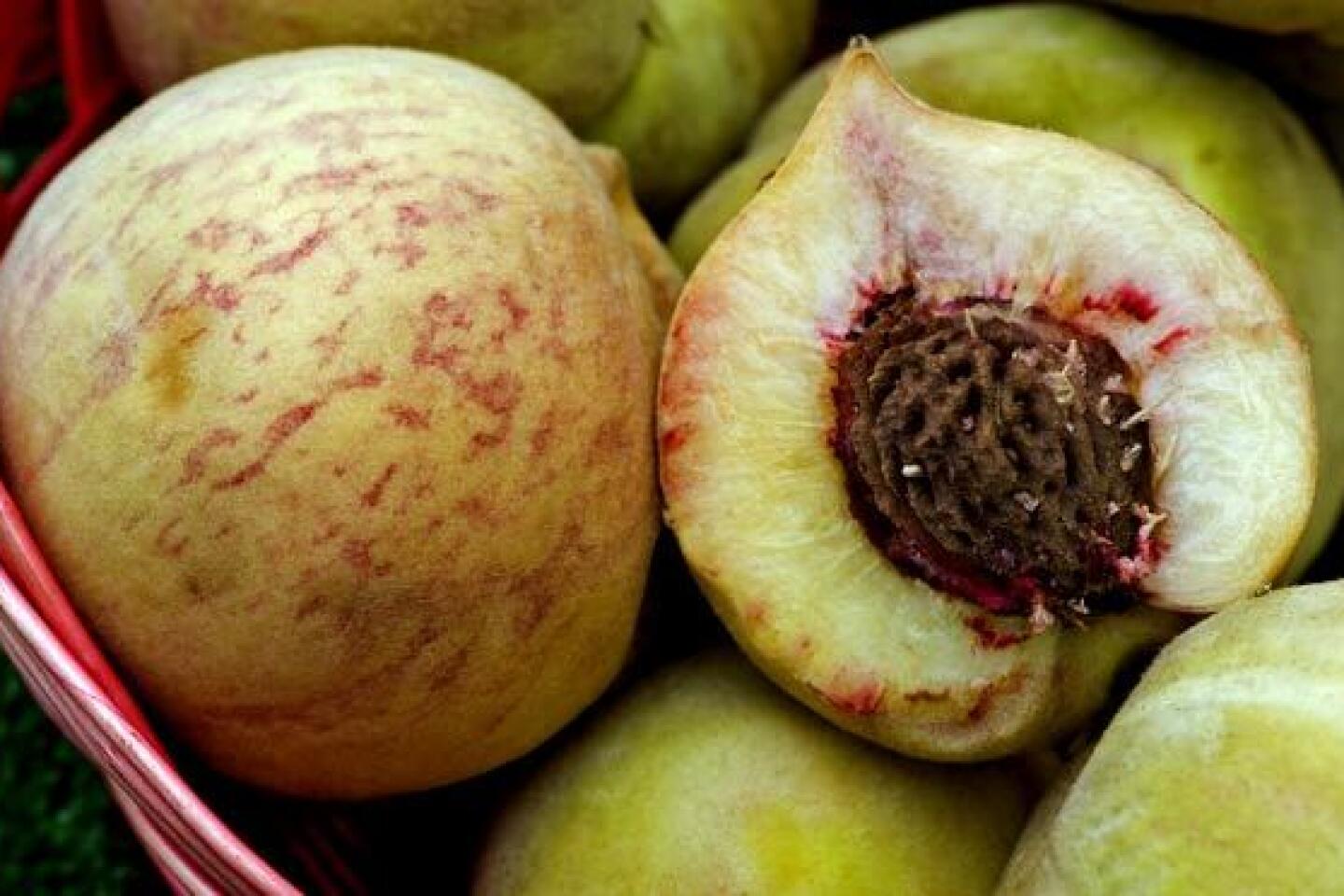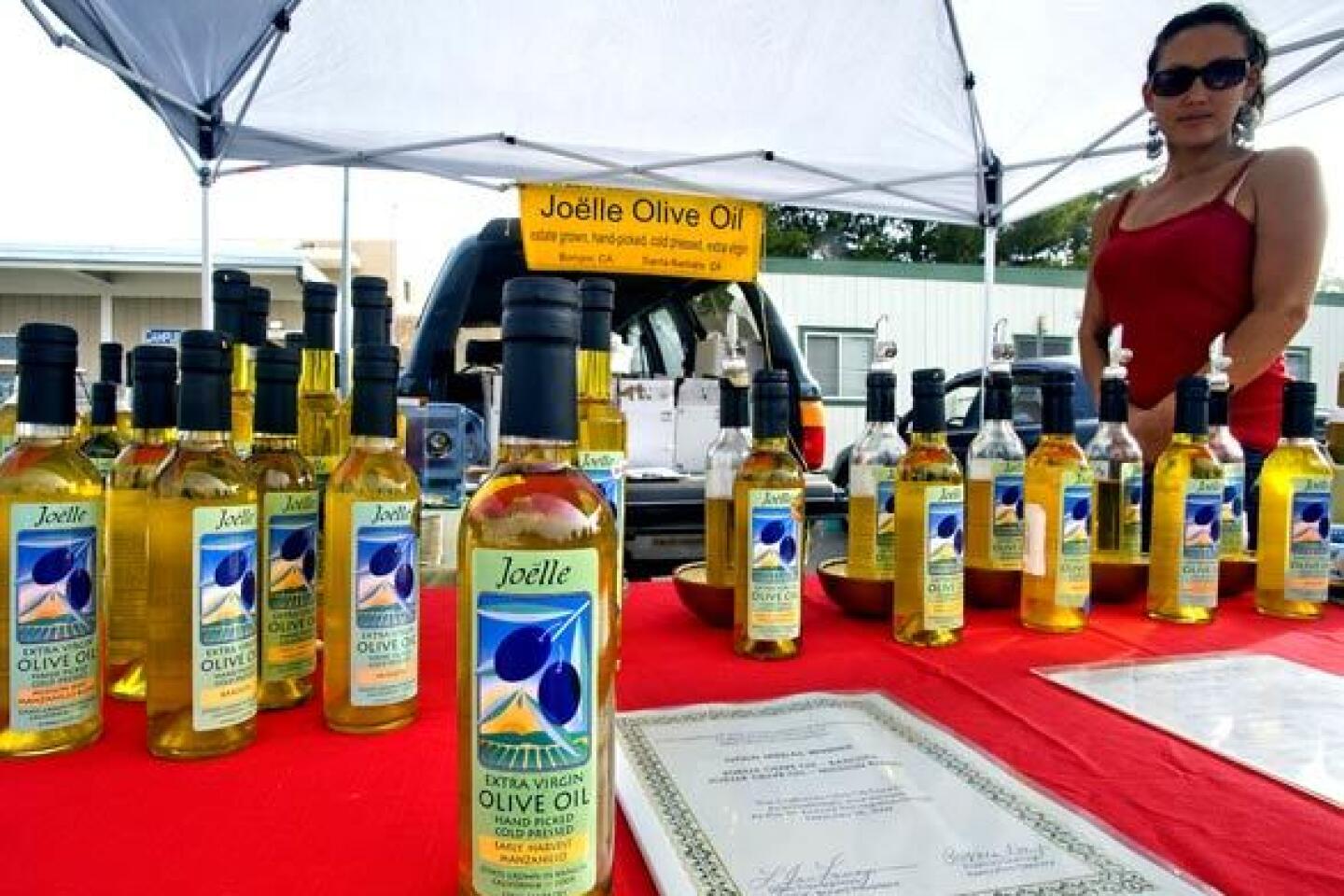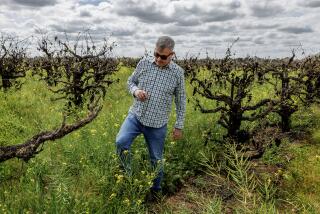New Moorpark farmers market: top muscat grapes, quality olive oil
By most counts, the new farmers market in Moorpark is pretty nondescript. Brand new (it only opened in June), it is modest in size, with about a dozen certified producers, and has been relatively quiet so far. But against all odds, this one small market features two vendors that sell one of the scarcest and greatest grape varieties you’ll ever taste.
Muscat of Alexandria is the king of grapes, a variety that has been grown in the Mediterranean area for hundreds of years. Light green to straw yellow when fully ripe, with a whitish bloom, it is rich in the muscat aroma prized by connoisseurs, which derives largely from linalool and geraniol, terpenes common in flowers and perfumes. For many decades Muscat of Alexandria was the leading variety grown to make raisins in California, and it still is used for making wine. But now it is spurned by table grape shippers and hard to find even at farmers markets, because its seeds, softer texture and heady aroma turn off some buyers. This seems to be a banner year, however, with an abundant, high-quality harvest. Long live the king!
One of the grape growers, Linda Raphael of Apkarian Family Farm from Reedley, Calif., also sells another classic seeded grape, Muscat Hamburg, which has blue-black berries, juicy pulp and an exquisite muscat flavor. Originating centuries ago as a hybrid of Muscat of Alexandria and Black Hamburg, it was brought back to notice by a Mr. Snow in England about 1850. Although it never has been a major variety in California, it remains the favorite table grape in France, where cultivation centers on the Vaucluse region, near Avignon.
It is well worth searching out these grapes from Raphael or from Fife’s Family Farm of Visalia; both also sell at the Santa Clarita and Thousand Oaks markets.
Almost as rare as traditional table grapes at local farmers markets is high-quality olive oil, which is available at Moorpark from Joëlle Ranch of Bangor, a small town in the Sierra foothills northeast of Sacramento. Many commercial oils suffer from rancidity and off-flavors that develop when the fruits are left to sit around and ferment, but the oils from Joëlle (named after the owner’s daughter) are pressed within 24 hours of harvest and so are bright and clean tasting. My favorite of the five kinds sold by the stand is the 2009 early harvest Manzanillo, rich in grassy, peppery notes. It could be overwhelming to the uninitiated, but this flavor profile is increasingly sought by aficionados of fine olive oil.
Moorpark, which lies at the eastern edge of the prime agricultural district of Ventura County, historically has been underserved by farmers markets. The market’s sponsor, Ventura County Certified Farmers’ Markets, also organizes the largest local venues, in Thousand Oaks and Ventura.
Moorpark farmers market, Moorpark College, Parking Lot G1 off Campus Park Drive, Saturdays 8 a.m. to noon.
Tip of the week: With its thick fuzz, greenish-white skin blotched with red and intense peachy aroma, the Indian Blood Freestone is a most curious fruit and the subject of a virtual farmers market cult. But it’s also a bit of a mystery: Discovered in the mid-19th century by John M. Ives of Salem, Mass., the variety typically has deep red flesh, and the peaches grown by John Tenerelli in Littlerock grew like that when his trees were young; but over the years they mysteriously have lost this pigmentation and now are creamy white inside, with just an occasional wisp of red. They bruise easily when ripe, and tend to crack, so Tenerelli keeps just 10 trees of the variety and sells the fruits personally at the Torrance Saturday and Santa Monica Wednesday markets; his neighbor Charles Yingst also grows them and sells at Hollywood.
More to Read
Eat your way across L.A.
Get our weekly Tasting Notes newsletter for reviews, news and more.
You may occasionally receive promotional content from the Los Angeles Times.
